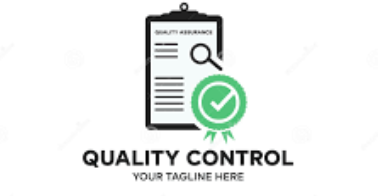Product quality control audits stand as sentinels of excellence in the realm of manufacturing and production. They are systematic examinations designed to ensure that products meet predefined standards of quality, safety, and compliance. Let’s explore the foundational role they play in upholding standards and fostering trust among consumers and stakeholders.
Ensuring Compliance and Consistency
At the heart of quality control audits lies the commitment to compliance and consistency. By conducting regular audits, organizations can verify adherence to regulatory requirements, industry standards, and internal protocols. This rigorous scrutiny helps mitigate risks, safeguard product integrity, and uphold the trust of consumers and regulatory bodies alike.
Identifying Areas for Improvement
Quality control audits serve as diagnostic tools, pinpointing areas for improvement within the production process. Whether it’s detecting deviations from specifications, identifying root causes of defects, or assessing the effectiveness of corrective actions, audits provide invaluable insights that drive continuous improvement. By addressing weaknesses and inefficiencies proactively, organizations can enhance product quality and operational excellence.
Enhancing Supplier Relationships
In today’s interconnected global marketplace, product quality often hinges on the performance of suppliers and partners. Quality control audits play a pivotal role in nurturing collaborative relationships with suppliers by setting clear expectations, monitoring performance, and fostering transparency. By engaging in constructive dialogue and sharing best practices, organizations can build resilient supply chains that prioritize quality and reliability.
Safeguarding Brand Reputation
The reputation of a brand is a precious asset built on trust, reliability, and integrity. Quality control audits serve as guardians of brand reputation by ensuring that products consistently meet or exceed customer expectations. By demonstrating a steadfast commitment to quality and safety, organizations can strengthen brand loyalty, differentiate themselves from competitors, and mitigate the reputational risks associated with product recalls or quality lapses.
Empowering Data-Driven Decision-Making
In an era defined by data abundance, quality control audits provide a wealth of actionable insights that inform decision-making at all levels of an organization. By leveraging data analytics and trend analysis, stakeholders can identify patterns, anticipate potential issues, and make informed decisions to optimize processes and outcomes. This data-driven approach fosters agility, resilience, and adaptability in an increasingly complex and competitive landscape.
In conclusion, product quality control audits serve as linchpins of excellence, integrity, and trust in the modern marketplace. By embracing a proactive and systematic approach to quality assurance, organizations can uphold standards, drive continuous improvement, and inspire confidence among consumers and stakeholders alike.









